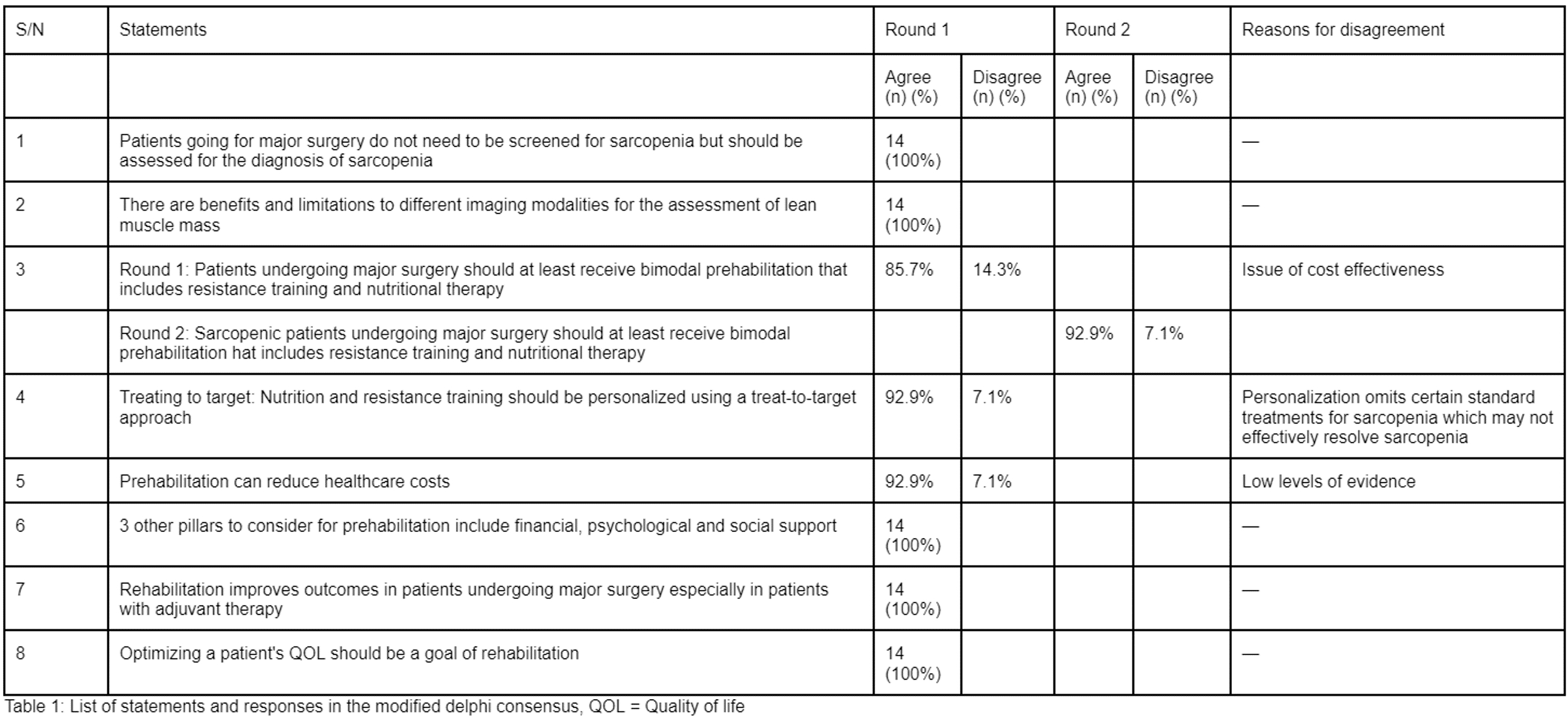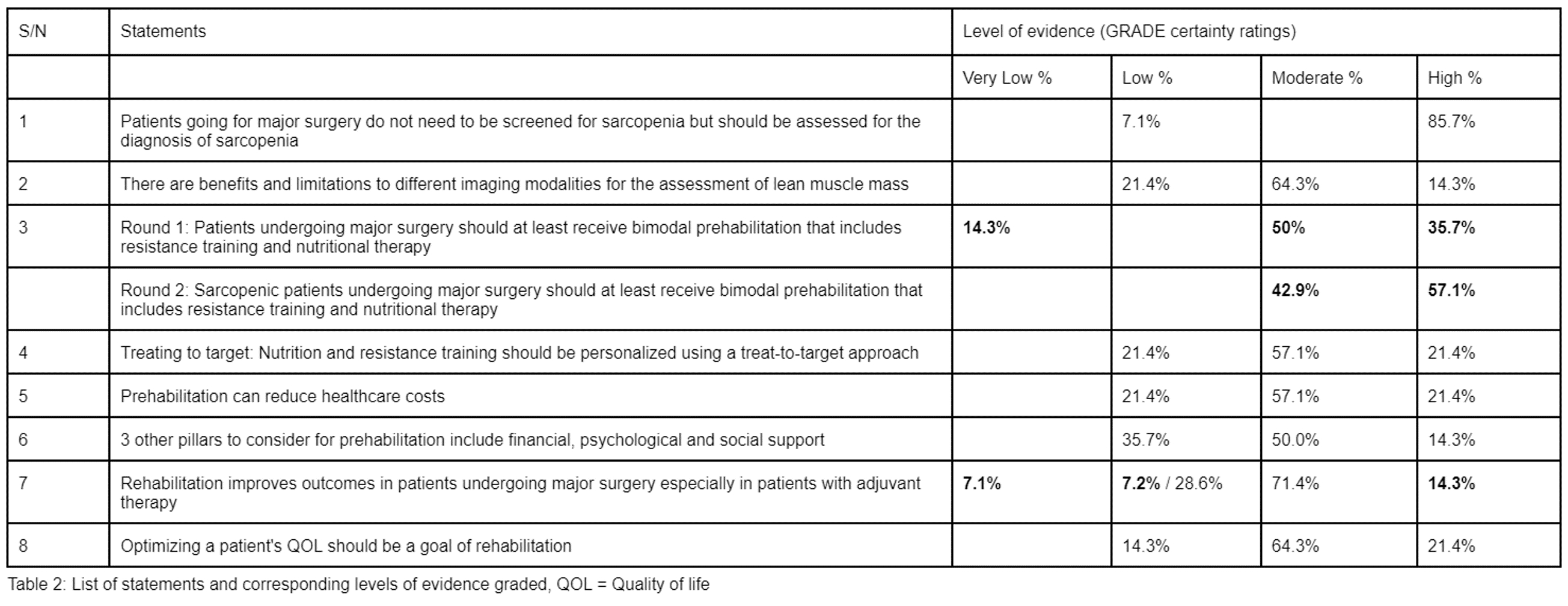Back to 2024 Abstracts
MANAGEMENT OF SARCOPENIA IN SURGICAL PATIENTS: A MODIFIED DELPHI CONSENSUS
Ming Yu Chew
*1, Frederick Hong
21Medicine, National University of Singapore, Singapore, Singapore; 2Seng Kang General Hospital, Singapore, Singapore
Background: Sarcopenia is a worldwide epidemic with serious negative implications on health, hospitalization and overall postoperative recovery. No mutual consensus exists regarding perioperative management of sarcopenia in surgical patients, despite the exceedingly high prevalence of sarcopenia. The purpose of this study is to create greater clarity pertaining to the recognition of sarcopenia, the application of assessment criteria of sarcopenia and perioperative management of surgical patients.
Methods: A modified Delphi consensus method consisting of 14 panelists of experts forming a multidisciplinary team to include surgeons, geriatricians, anesthesiologists, physiotherapists and dieticians. 85% agreement was regarded as formed consensus. Literature searches with MEDLINE, Embase and Scopus for articles between 2010 to 2023 were performed independently and reviewed to determine the objectives of the study.
Results: The 14 panelists underwent two rounds of voting before reaching consensus for all 8 statements. Levels of evidence for each statement were graded as well.
Table 1 & 2 represents the percentage agreement of the 8 statements and levels of evidence, respectively. Each of the 8 statements were thoroughly discussed at the end of the modified Delphi consensus.
Conclusion: With the varying approaches in management, poor understanding and recognition of sarcopenia makes the management of sarcopenia in surgical patients complicated. There is, however, plenty of evidence linking beneficial impact on recovery and post-operative complications with management of Sarcopenia which makes the need to achieve awareness and consensuses imperative and urgent.


Back to 2024 Abstracts

